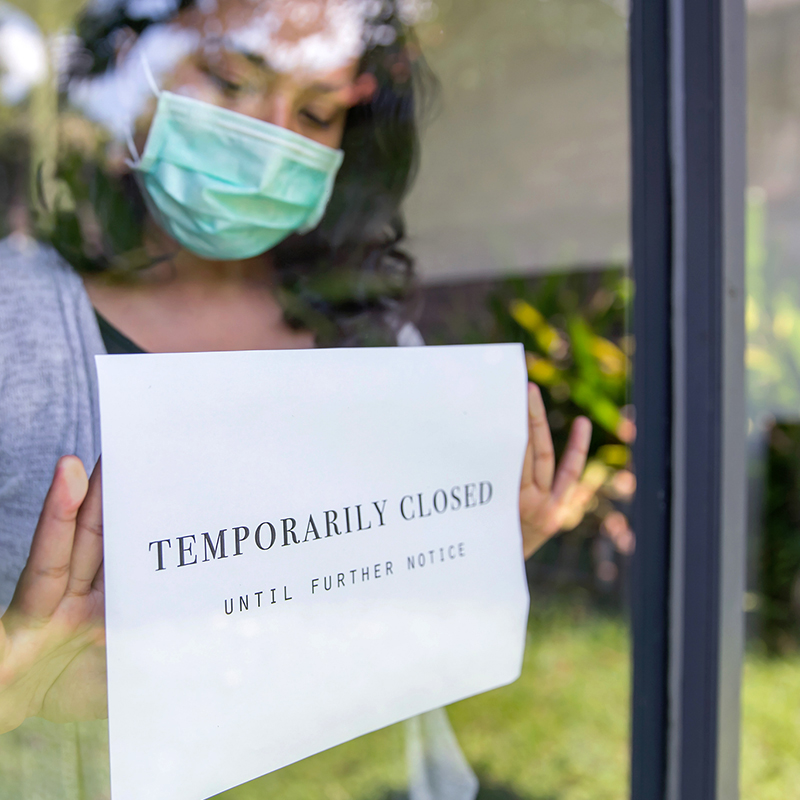How to manage psychological safety at work
COVID-19 has fundamentally changed the way we live and work. But what are the effects on our mental health? And what does this added layer of stress and anxiety mean for businesses in relation to the mental welfare of their employees?
For practical support to help you and your employees, the Jonah Group’s workplace mental health expert Anna Feringa shares her insights.
“When the pandemic first hit, businesses were scrambling to stay afloat and they didn’t have time to think about mental health,” reflects Feringa.
People were adjusting to working remotely, juggling home schooling with work and staying in their own homes. There’s no doubt this experience was driving up stress levels for some.
“Like a burning candle, we all burn out eventually,” Feringa says. “People get exhausted living in a constant state of hyper-vigilance.”
And that has a profound impact on people’s resilience.

The struggle is real
Months on from the beginning of the pandemic it’s natural that we’re still questioning the future. “For instance, people are asking: am I going to get sick? Am I going to have a job next week? When am I going to see my family? All these concerns are top of mind and have an impact on both home and work life,” Feringa says.
Just as many of us began to adapt to the ‘new normal’, many of us experienced the impacts of a second COVID-19 wave and this understandably has added to many people’s stress.
So, as leaders, what can we do to address this increasing pressure on mental health?
Put mental health on the safety agenda
Organisations need to work hard to stay in business. It’s becoming increasingly clear that they also need to focus on their employees' mental health. “It’s no longer a nice to have,” says Feringa. “It’s now firmly a part of an organisation’s duty of care.”
To get started, says Feringa, you need executive level buy-in. “Sadly, there’s still a stigma around mental health, so it needs to come from the top down to be taken seriously.
“It’s about educating leaders on how to start the conversation with staff. Organisations need to give leaders permission to have those tough conversations. They need that confidence and the organisational permission.”

How do you start a conversation?
Leaders and managers need to know the warning signs that their colleagues or employees are not okay. Look out for a change in behaviour or a drop in performance. These are often triggers to start a mental health conversation with an employee, advises Feringa.
It could be as simple as, “I saw you made a couple of mistakes this week. What’s going on? Are you OK?”
It’s important to position it as a care conversation, not a performance discussion.
Another example could be, “I’ve noticed you’re not your usual bubbly self. Are you OK? Do you need anything?”
Research suggests people aren’t comfortable being vulnerable with their managers, so transparency is key, says Feringa.
“If leaders send the message that it’s okay to be vulnerable, people will start opening up earlier. And that’s the key to managing mental health,” says Feringa.
General and critical mental health
There are typically two categories of mental health – general and critical. General mental health can often be managed by having the right conversations at the right time.
Let’s say someone has a recurring mental health issue, for example, depression. With a mental health plan in place, a leader is given the skills to start a conversation, says Feringa. They’d have picked up the signs through a change in behaviour or a drop in performance.
“We get into critical mode when someone has had an anxiety attack, repeated anxiety attacks, have indicated they’re considering self-harm or suicide, or had a psychotic episode,” she says.
“These are classified as critical incidents, which are well beyond a conversation. That’s why it’s important to have a formalised Critical Mental Health Incident Protocol in place. It’s not only an invaluable source of information to care for your employees, but it covers your business as part of your duty of care.”

Leave it to the professionals
Mental health is a serious issue and will need professional treatment.
“Leaders need to understand they can’t fix everything, particularly where we’re talking about mental health vulnerabilities,” says Feringa.
If a team member is burned out, they may need a couple of days off to recover. If it’s more serious, they may need to contact a GP or specialist for help.
If a treatment provider has recommended an extended period off work, keep in regular contact as this will help to keep the employee from worrying how they’re being perceived by their manager.
Of course, leaders are human too, so seek help if you aren’t feeling well.
For more information and practical resources to put into practice, see this list of mental health service providers.
Like to learn more about managing mental health? See Q Academy training for our full series of webinars and articles.
 About Anna Feringa
About Anna Feringa
With over 15-years’ experience, Anna supports employers by helping them see that embracing mental health in the workplace can help prevent injury and drive a great culture.
She helps Australian businesses to go from fearful and confused, to confident and responsive when faced with Mental Health challenges in the workplace.









